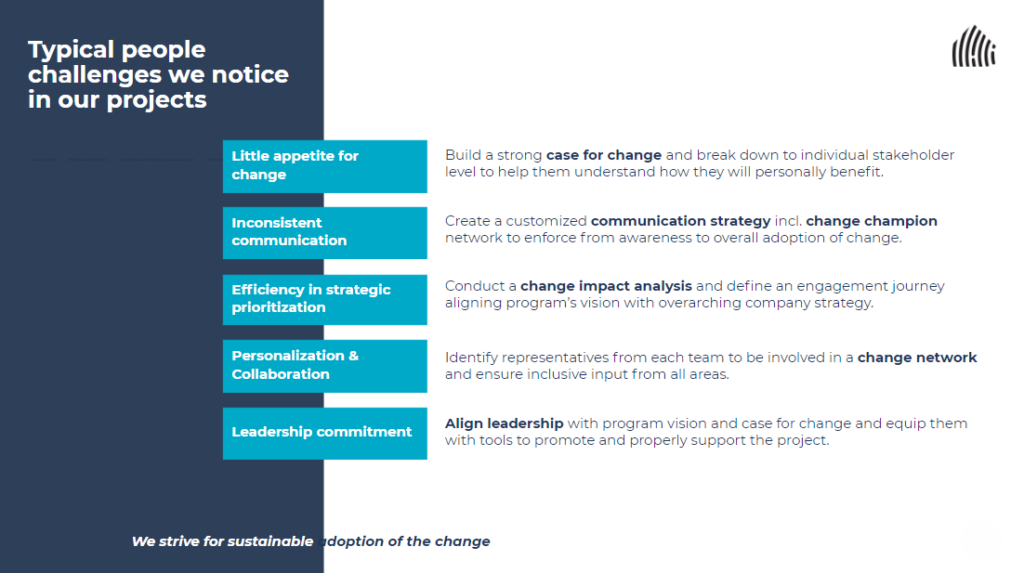
Article
Change Management and Employee Well-being
Change management is an inevitable part of organizational growth, but if not managed well, it can lead to employee burnout, disengagement, and turnover. The intersection of change management and employee well-being is crucial for a thriving workplace. Let’s dive into how these two are intertwined and why they matter for your organisation.
Understanding Change Management
Change management refers to the methods and manners in which a company describes and implements change within both its internal and external processes. Effective change management is more than just communication as most people think. It’s about is about engaging people, getting the business ready to receive the change, reinforcing the ability and willingness to adopt sustainable change. It is not just about business metrics; it’s about people.
The Human Side of Change
Employees are the lifeblood of any organization. Their well-being is critical to not only their personal health but also to the health of the company. A major change can often trigger stress and anxiety among staff. However, when change is managed well, employees feel engaged, informed, and empowered. Their confidence grows as they acquire new skills and adapt to evolving roles. Consequently, employee well-being improves, resulting in higher job satisfaction, reduced turnover rates, and increased loyalty.
Figures and Data That Matter
Effective change management significantly impacts employee well-being and organizational success. Here are some key data points from Europe linked to this topic:
- Work-Related Stress: Managing change effectively can reduce work-related stress. The European Agency for Safety and Health at Work (EU-OSHA) reports that psychosocial risks and work-related stress contribute to a substantial portion of lost working days. Approximately 50-60% of all lost working days in the EU are linked to work-related stress, highlighting the importance of well-managed change processes to mitigate these issues ¹.
- Employment Statistics: Effective change management can enhance employee retention and well-being. According to the European Commission, annual employment statistics show ongoing challenges in maintaining employee well-being, with various sectors reporting significant stress and turnover rates. This data underscores the need for robust change management strategies to support employee well-being during transitions ².
- Global Trends: The Gallup 2023 report highlights that globally, including in Europe, engaged teams are 21% more productive. Effective change management is crucial in maintaining this engagement and reducing turnover, which directly impacts employee well-being ³.
Strategies for Success
To ensure that change management leads to positive outcomes, consider the following strategies:
1. Transparent Communication: Keep employees informed about what changes are happening, what’s in it for them, and how they will be implemented.
2. Employee Involvement & engagement: Involve employees in the change process, giving them a sense of ownership and control.
3. Enable your workforce: capability building
4. Support Systems: Provide support such as counseling services, stress management workshops, and flexible work options.
5. Continuous Feedback: Implement a system for continuous feedback and make sure that employee concerns are addressed promptly. + make sure your employees are heard.
6. Organisational alignment:

Thrive Through Change
If navigating the complexities of change while keeping your team’s well-being at the forefront seems daunting, consider reaching out. We specialize in blending organizational goals with employee care, ensuring that your company thrives through transition. Let’s discuss how we can support your next chapter in change.
